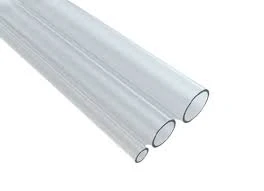Nov . 06, 2024 00:56 Back to list
Durable HDPE Pipes for Reliable Water and Waste Management Solutions
The Versatility and Applications of Solid HDPE Pipes
High-Density Polyethylene (HDPE) pipes are renowned for their robustness, flexibility, and resistance to a variety of environmental conditions. A significant category within this sector is the solid HDPE pipe, which presents unique advantages across various industries and applications.
Characteristics of Solid HDPE Pipes
Solid HDPE pipes are manufactured from high-density polyethylene, a type of plastic that is known for its high tensile strength and durability. These pipes exhibit a number of features that make them an excellent choice for numerous applications
1. Durability and Longevity Solid HDPE pipes have an impressive lifespan that can exceed 50 years when properly installed and maintained. They resist corrosion, weathering, and various chemicals, making them ideal for use in challenging environments.
2. Flexibility and Weight Unlike traditional materials such as metal and concrete, solid HDPE pipes are lightweight and flexible. This characteristic facilitates easier transportation and installation. Their flexibility also allows them to withstand ground movements and shifting soil conditions without cracking.
3. Resistance to Blockages The smooth interior surface of solid HDPE pipes minimizes friction and the likelihood of blockages, ensuring efficient flow rates. This property is particularly beneficial in applications requiring the transport of waste or fluids.
4. Environmental Impact HDPE is a recyclable material which contributes to reducing environmental waste. Moreover, their long lifespan and reduced maintenance needs also contribute to their eco-friendliness in comparison to traditional piping materials.
Applications of Solid HDPE Pipes
solid hdpe pipe

The versatility of solid HDPE pipes allows for a wide range of applications across various sectors
1. Water Supply Systems Solid HDPE pipes are extensively used in municipal water supply systems due to their ability to withstand pressure and prevent leaks. They help in maintaining the quality of water by preventing contamination from external sources.
2. Sewage and Waste Management In sewage and wastewater treatment plants, solid HDPE pipes offer a reliable solution for transporting waste materials. Their resistance to corrosive substances typically found in sewage makes them an ideal choice for this application.
3. Agricultural Irrigation Farmers favor solid HDPE pipes for irrigation systems due to their durability and ability to handle fluctuating pressure levels. These pipes ensure efficient water distribution and minimize water wastage through leak prevention.
4. Industrial Applications Industries utilize solid HDPE pipes in various processes, from chemical transport to manufacturing. Their resistance to chemical corrosion makes them suitable for transporting a wide range of substances without risk of reactions.
Conclusion
In conclusion, solid HDPE pipes signify a major advancement in piping technology, offering a combination of durability, flexibility, and environmental sustainability. Their wide-ranging applications underline their importance in infrastructure, agriculture, and industry.
As technological advancements continue to evolve, the future of solid HDPE pipes looks promising. Their ability to adapt to changing environmental conditions and requirements positions them as a vital component in addressing modern infrastructure needs. With ongoing research and innovation, solid HDPE pipes will undoubtedly play a critical role in shaping the way we manage water resources, waste management, and industrial processes in the years to come.
-
High-Quality PPR Pipes and Fittings Durable ERA PPR & PVC PPR Solutions
NewsJul.08,2025
-
Black HDPE Cutting Board - Durable, Non-Porous & Food Safe HDPE Plastic Cutting Board
NewsJul.08,2025
-
High-Quality CPVC Panel Durable HDPE & PVC Panels Supplier
NewsJul.08,2025
-
Double PE Welding Rod Supplier - High Strength, Durable & Versatile Welding Solutions
NewsJul.07,2025
-
High-Quality PVC-O Pipe Supplier Durable 75mm PVC Pipe & Connections Leading PVC Pipe Company
NewsJul.07,2025
-
HDPE Drainage Pipe Supplier – Durable & Corrosion-Resistant Solutions
NewsJul.06,2025

